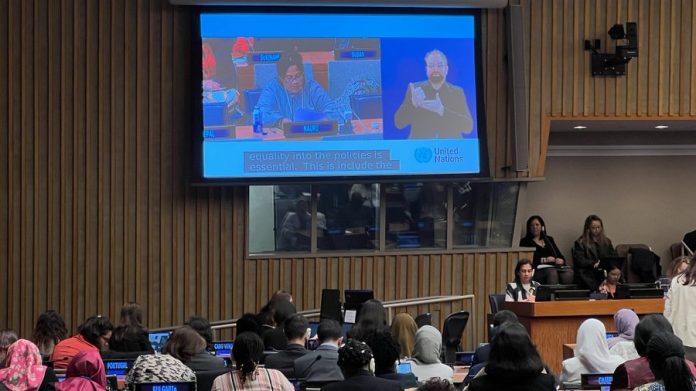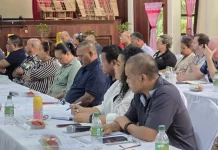One of the longest serving women in Pacific politics, Nauru Minister for Women and Social Affairs Charmaine Scotty, has told the annual UN meeting on the state of gender equality and women that policy and capacity building are key to advancing gender.
In a statement to a Ministerial Roundtable sharing best practice on the CSW68 theme on strengthening institutions and maximising financing to achieve gender equality and empower all women and girls, Scotty shared insights from Nauru involving policy measures, capacity-building initiatives, and institutional reforms.
“A viable approach to ensuring an equitable allocation of resources for addressing the needs and priorities of women and girls in Nauru is to establish gender-responsive budgeting processes. Nauru has made significant strides in achieving this objective by having cabinet endorsement for gender responsive budgeting and assistance from like minded countries,” she said.
Minister Scotty said it was essential to build the capacity of institutions to mainstream gender equality into their policies and practices.
“This can include providing training and technical assistance to staff on gender-sensitive programming, data collection, and analysis. By incorporating a gender perspective in decision-making processes, institutions can better identify and address systemic barriers to women’s empowerment and promote gender equality,” she said.
Nauru is running training and mainstreaming of gender in budgetary processes across all government departments.
Minister Scotty said it was also important to promote collaboration and partnerships between government agencies, civil society organisations, and the private sector to leverage resources and expertise for gender equality initiatives.
She shared how Nauru had done this by bringing stakeholders together for the Second Nauru National Women’s Summit.
An equitable outcomes document is to be endorsed by cabinet this year, she said.
Establishing accountability mechanisms and monitoring frameworks is crucial for tracking progress towards gender equality goals and ensuring that resources are effectively utilised, and Nauru is working closely with crop agencies to set benchmarks, collect gender-disaggregated data, and conduct regular evaluations to assess the effectiveness of financing for gender equality initiatives, she added.
“Overall, by implementing these good practices for strengthening institutions and maximising financing for gender equality in Nauru, we are creating an enabling environment for women and girls to fully participate in society, achieve economic empowerment, and contribute to sustainable development. It is essential to prioritise gender equality in policy-making, resource allocation, and institutional practices to create a more equitable and inclusive society where women and girls have equal opportunities to thrive and reach their full potential,” she said.













